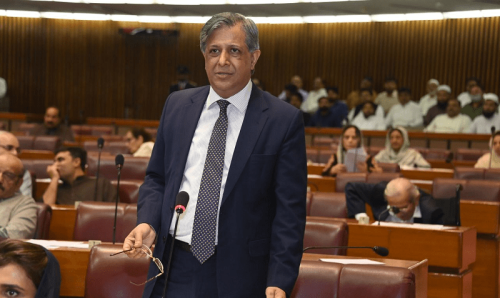ISLAMABAD: Defence Minister Khawaja Asif has warned that those who leak confidential documents or information to the public will face prosecution under the Official Secrets Act.
Ironically, the minister made this announcement on X (formerly Twitter), which is currently blocked in the country and despite the government’s directives, cabinet members continue to defy the ban.
In his message on Monday, the defence minister stated that action would be taken against all those involved in spreading information from official correspondence or displaying official documents marked “Secret”.
He said the federal government had taken serious notice of the floating of official secret information, particularly on social media, and has decided to take action under the Official Secrets Act, 2023. He added that spreading such content could harm Pakistan’s strategic and economic interests and damage its relations with friendly and brotherly countries.
The minister warned that not only would strict action be taken against those leaking such information, but also against those indirectly connected to the offense by sharing it. “Those sharing such documents will face two-year imprisonment and a fine,” he said.
However, there was no clear distinction in the bureaucracy about what information can be categorised as “Secret”. Asked about this, Mr Asif denied that his message implied political usage of a security law, saying, “Laws are there to be used sparingly and equitably, not to serve political objectives.”
The defence minister’s message sparked strong reactions from activists, with former president of the Pakistan Federal Union of Journalists Nasir Zaidi saying the government appears confused and is becoming part of the hybrid system. “This government will also face public reaction, just like previous governments who tried to curb freedom of expression and media freedom.”
Digital rights activist Haroon Baloch noted that similar clauses were included in the Pakistan Electronic Crime Authority (Peca) Act, 2016, which raised strong reservations that it was aimed at restricting the flow of information in the country. “By curtailing investigative journalism, the government is also trying to reduce transparency in the system,” Mr Baloch said.
Nighat Dad, executive director of the Digital Rights Foundation, suggested that the government needed to enact a data protection law in the country instead of controlling the digital space and flow of information.
Published in Dawn, May 14th, 2024













































Dear visitor, the comments section is undergoing an overhaul and will return soon.